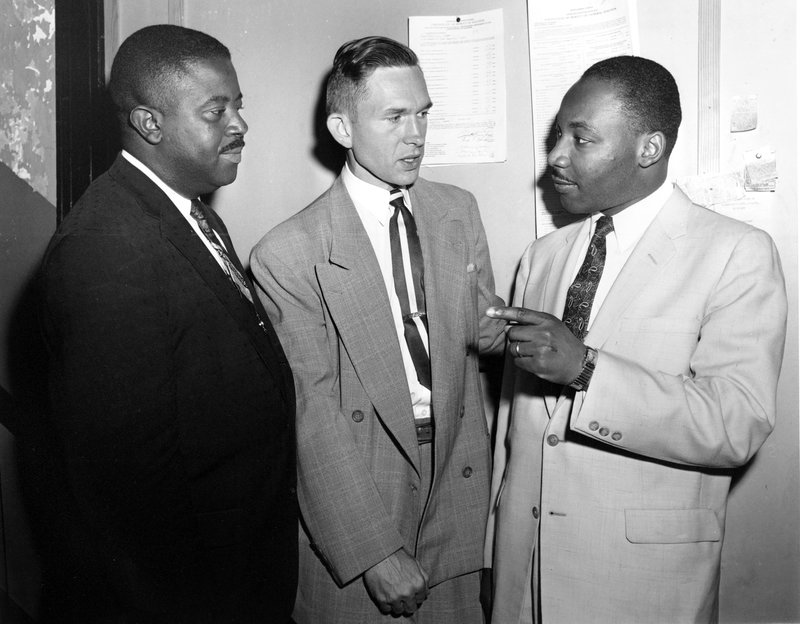Rev. Robert S. Graetz, a civil rights activist who dedicated his ministry to fighting poverty and discrimination, died at the age of 92 on Sept. 20. With his passing, the nation lost a social justice giant.
I lost an uncle. Uncle Bob was sweet, empathic, gentle, sensitive, yet fierce and steadfast in his convictions.
Known as that “white preacher from Montgomery,” my Uncle Bob ministered to the majority-Black Trinity Lutheran Evangelical Church during one of his early assignments. Involved in race relations since 1948, Uncle Bob knew things were heating up in the South. Before assigning him to the Montgomery parish, church officials made him promise he would not start any trouble.
Uncle Bob liked to say, “We didn’t start trouble, but we joined it because it was the proper thing to do.”
Rosa Parks directed the local NAACP youth council which met at my uncle’s church. She was also a neighbor to my aunt and uncle. She called Uncle Bob one night to confide, “Pastor, I did not give up my seat on the bus today.” He supported her and one thing led to another.
Soon Uncle Bob and Aunt Jeannie were helping organize the Montgomery Bus Boycott of 1955-56 and shuttling people to and from work in a Chevy. They joined with other civil rights leaders including Martin Luther King Jr., E.D. Nixon and the Rev. Ralph Abernathy in building what they called, “the Beloved Community.”
Their support of the boycott brought harassment, terrorism and death threats to Uncle Bob, Aunt Jeannie and my cousins. Their home was bombed twice. Yet they persisted to fight for social justice.
“One of our jobs in life is to heal all the bad things that are going on and help people to realize that fairness is necessary,” my Aunt Jeannie told a reporter writing about Uncle Bob’s life.
The work Uncle Bob and Aunt Jeannie accomplished with the powerful leaders in those historic times has had a profound influence on my life and my work in Nashville.
From them, I learned change is possible, that those run-down houses along the city’s center belong to hardworking people who deserve vitality in their neighborhoods, and that as a community we could do something about it.
They helped me see those who might feel unseen, opened me up to being with people from different paths, and inspired a good dose of rebellion in me. They ignited my entrepreneurial spirit and fueled my passion for community building. For this, I am grateful.

